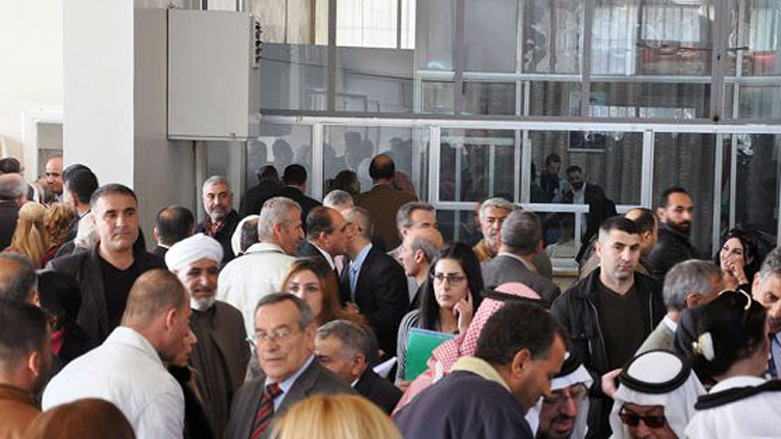Syria opens ‘consular' office to issue documents in Hasakah

ERBIL (Kurdistan 24) – Syria’s Ministry of Foreign Affairs and Expatriates opened what it called a “consular" office in Hasakeh, state-run government news agency Sana reported on Sunday.
The office will provide consular services for residents of the eastern provinces of Hasakeh, Raqqah, and Deir al-Zor to “spare them the difficulty of traveling to Damascus” to obtain official documents. The office will also be equipped to certify existing documents, such as educational, birth, and death certificates.
In the past, civilians had to travel to the nation’s capital to process all official legal paperwork.
According to Sam Heller, the International Crisis Group's Senior Analyst on Non-State Armed Groups, this might be an attempt by the Syrian government to get more support from civilians in areas within the northeast that fall under the control of the US-backed Syrian Democratic Forces.
“Some are deriding this as ceding the east or treating it like a foreign country, but – at a time when some U.S. officials are talking about denying Damascus control indefinitely – it seems to draw residents of the U.S.-occupied east closer to the official, unitary Syrian state,” he said on Twitter.
Others have suggested it’s a de facto recognition by the Syrian government that it will not be able to fully return to the northeast of Syria, and therefore needed to open such an office.
"I'm not sure how much to make of what could just be an administrative and practical move, but obviously the Syrian government has an interest in reasserting its presence in the northeast and in ensuring that people remain connected to the central bureaucracy,” Aron Lund, a fellow with The Century Foundation, told Kurdistan 24.
“Years of civil war and Islamic State rule and the presence of Kurdish groups that now enjoy overall military control make the bureaucratic aspect of governance a source of leverage for Damascus,” he continued. “People need official, signed and stamped documents - such as passports or birth certificates or high school grades - both in order to travel and work and have a normal life inside Syria and outside its borders.”
“The Syrian government is the only one who can provide those documents and stamps and signatures in a way that's universally recognized, inside and outside Syria. So that's something that the population depends on, because without these bureaucratic services you risk dropping off the grid and losing access to services and losing your legal identity," he concluded.
The employees, trained by the Syrian Foreign Ministry, will be based in Hasakah’s Postal Directorate Office.
The US, for its part, has said it will not leave Syria any time soon.
According to the Jerusalem Post, the US mission in the country is in the process of shifting from an anti-Islamic State (IS) mission to one that includes using eastern Syria as leverage against the Assad regime and its Iranian allies.
James F. Jeffrey, Special Representative for Syria Engagement, told reporters on Wednesday that the US needs to stay in order to ensure the defeat of IS.
“The enduring defeat is more than simply crushing the last ISIS [IS] elements that are holed up in platoon and company-sized units in towns along the Euphrates,” he stated.
“It’s also ensuring that, as I said, the stay-behind units that we have seen active in parts of the northeast of Syria are dealt with,” he continued. “It’s building up local security forces – that’s an important part of it.”
“It’s participating in a political process that gives the people of the northeast a future so that they aren’t going to be subject to temptations to go with ISIS as they did back in 2013-2014.”
Editing by John J. Catherine
